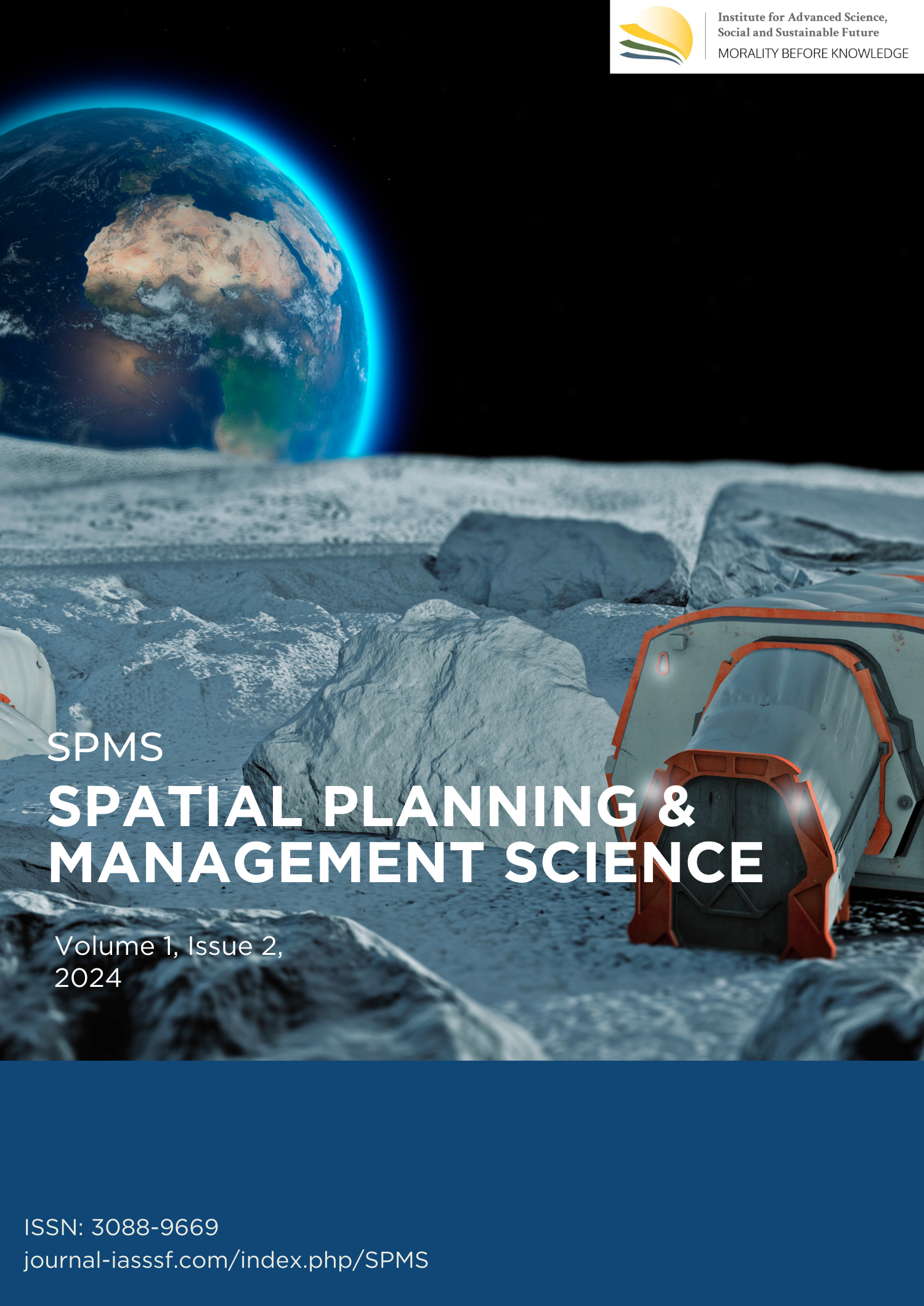Availability of green open space in jakarta using GIS analysis
DOI:
https://doi.org/10.61511/spms.v1i2.2024.1914Abstract
Background: Green Open Space is one of the important elements in sustainable urban development, especially in big cities like Jakarta that are experiencing rapid urbanization growth. This study analyzes the availability of green spaces in Jakarta and evaluates how far the minimum target of 30% of the city area mandated by Law No. 26/2007 on Spatial Planning has been achieved. Methods: The analysis was conducted using spatial data and green space maps, as well as literature review related to the concept of green space and environmental sustainability. Findings: The results showed that the availability of green open space in Jakarta is still far from the set target, with most of the city area dominated by residential and commercial areas. In addition, the planning and management of green open space still faces various challenges, such as land limitations, conflicts of interest in space use, and low public awareness of the importance of green open space. Conclusion: This research concludes with policy recommendations to increase the amount and quality of green spaces through a collaborative approach between the government, community, and private sector, in order to realize a greener and more sustainable city. Novelty/Originality of this article: The novelty of this research lies in its focused evaluation of Jakarta's Green Open Space availability using both spatial data analysis and regulatory benchmarks, particularly the 30% target mandated by Law No. 26/2007 on Spatial Planning.
References
BPS. (2023). Statistik daerah provinsi DKI Jakarta 2023. Badan Pusat Statistik Indonesia.
Aristyowati, A., Ellisa, E., & Gamal, A. (2024). An investigation of socio-spatial equality in blue-green space at the Setu Babakan Area, Jakarta. City and Environment Interactions, 22, 100137. https://doi.org/10.1016/j.cacint.2023.100137
Aryaguna, P. A., Gaffara, G. R., Sari, D. A. K., & Arianto, A. (2022). Green open space priority modelling using GIS analysis in West Jakarta. Indonesian Journal of Geography, 54(2), 263–271. https://doi.org/10.22146/ijg.68184
Heriyanto, N. M., Samsoedin, I., & Rochmayanto, Y. (2023). Plant diversity and carbon stocks in urban green open space (Case study in PT. Gajah Tunggal Tbk., Tangerang, Banten). Jurnal Sylva Lestari, 11(1), 66–78. https://doi.org/10.23960/jsl.v11i1.618
Indira, I. N., & Herdiansyah, H. (2021). Green open space implementation on the underground building. IOP Conference Series: Earth and Environmental Science, 755(1), 012023. https://doi.org/10.1088/1755-1315/755/1/012023
Nor, A. N. M., Aziz, H. A., Nawawi, S. A., Jamil, R. M., Abas, M. A., Hambali, K. A., Yusoff, A. H., Ibrahim, N., Rafaai, N. H., Corstanje, R., Harris, J., Grafius, D., & Perotto-Baldivieso, H. L. (2021). Evolution of green space under rapid urban expansion in Southeast Asian cities. Sustainability, 13(21), 12024. https://doi.org/10.3390/su132112024
Nurfadhil, R., & Zain, A. F. M. (2024). Evaluasi ketersediaan ruang terbuka hijau dan penerapan konsep kota hijau di Provinsi DKI Jakarta. Journal of Regional and Rural Development Planning, 8(1), 76–95. https://doi.org/10.29244/jp2wd.2024.8.1.76-95
Parris, K. M. (2016). Ecology of urban environments. John Wiley & Sons Ltd.
Prakoso, P., & Herdiansyah, H. (2019). Analisis implementasi 30% ruang terbuka hijau di DKI Jakarta. Majalah Ilmiah Globe, 21(1), 17–27. https://doi.org/10.24895/mig.2019.21-1.869
Sarofah, R., & Herliana, P. A. (2023). Analysis of government policy on green open space in Bekasi City. Jurnal Studi Ilmu Pemerintahan, 4(1). https://doi.org/10.35326/jsip.v4i1.3224
Sihombing, T., & Hutapea, D. (2022). Implementation of green open space policy in the utilization of public space in City of Medan. Medcom.id
Sutapa, I. D. A., Mbarep, D. P. P., Hasibuan, H. S., & Zalewski, M. (2023). Ecohydrology approach to strengthen public green open space management towards comfortable common space and playground in Kalijodo Area – Jakarta Province, Indonesia. Ecohydrology and Hydrobiology, 23(4), 518–531. https://doi.org/10.1016/j.ecohyd.2023.04.005
Ufaira, R., Amir, S., Indraprahasta, G. S., & Nastiti, A. (2023). Living in a hot city: Thermal justice through green open space provision. Frontiers in Human Dynamics, 5, Article 1237515. https://doi.org/10.3389/fhumd.2023.1237515
Yulita Suryantari, Ngarbingan, H. K., & Akbara, A. Z. (2022). Tebet Eco Park’s potential as a new green open space in South Jakarta, Indonesia: An analysis. Journal of Tourism and Economic, 5(2), 107–119. https://doi.org/10.36594/jtec/xeh0ze54
Downloads
Published
Issue
Section
Citation Check
License
Copyright (c) 2024 Prestisia Intan Nurcahyani Kusumaningtyas

This work is licensed under a Creative Commons Attribution 4.0 International License.






